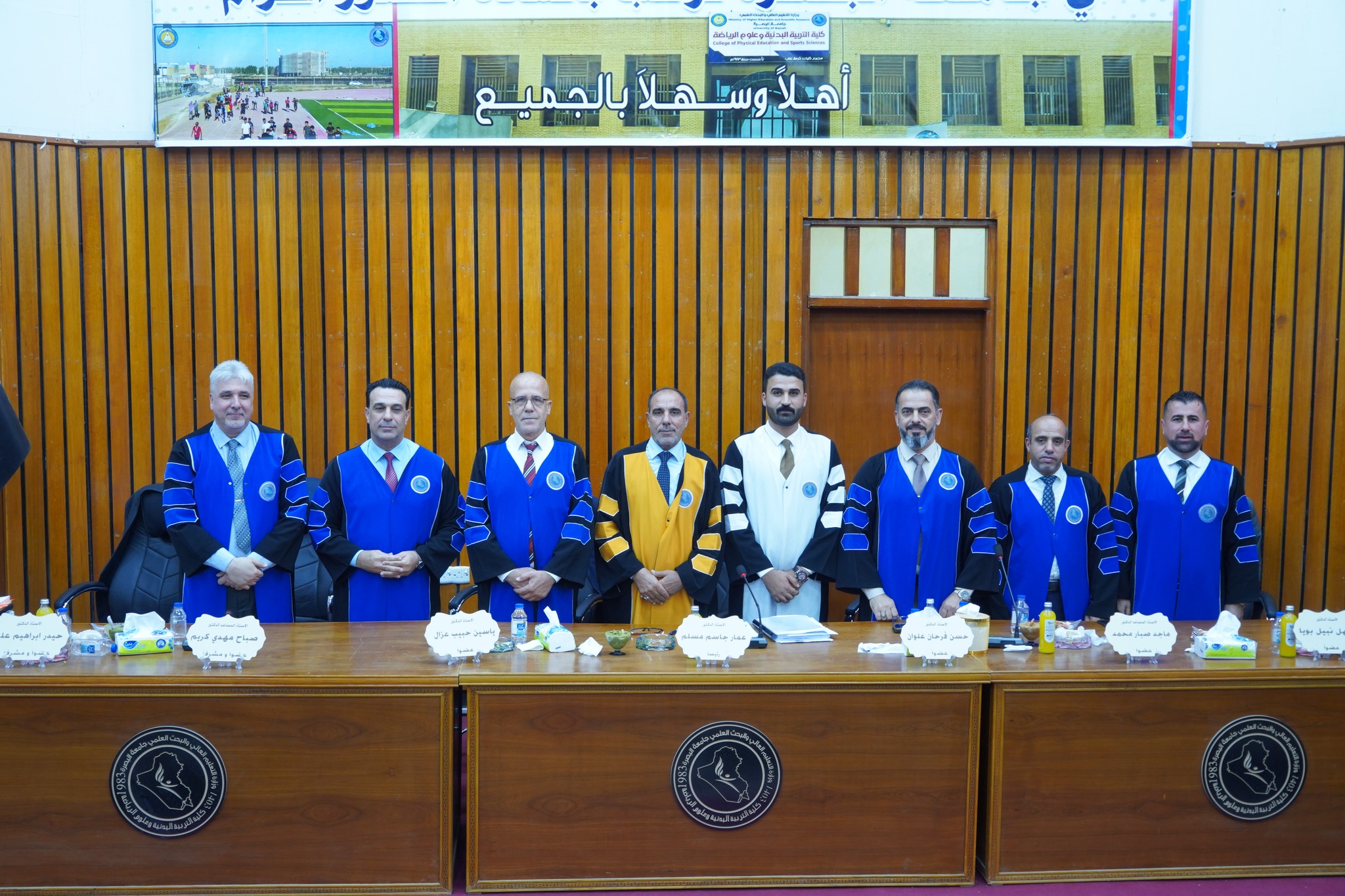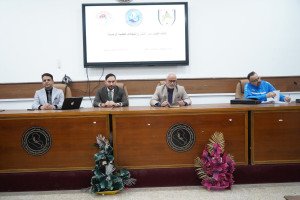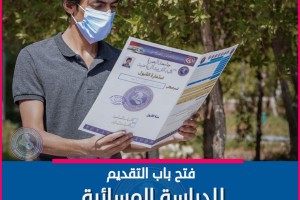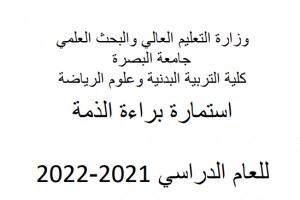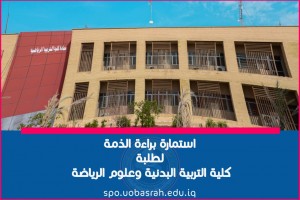
In the presence of the Dean of the College, Professor Dr. Haider Awfi Ahmed, a doctoral dissertation was discussed at the College of Physical Education and Sports Sciences at the University of Basra. The thesis was titled "The Effect of Aerobic Exercises and Tabata with High-Protein Nutritional Bars (Made Locally) on Weight Loss and Some Biochemical and Functional Variables in Bodybuilders." The thesis was presented by researcher Hassan Saad Shalak, under the supervision of Professor Dr. Sabah Mahdi Karim and Professor Dr. Haider Ibrahim Ali. Its importance was highlighted by its role in "researching the effect of Aerobic Exercises and Tabata with High-Protein Nutritional Bars on weight loss and achieving optimal performance in various competitions." The thesis aims to:
1. Manufacture protein-rich nutrition bars as new protein sources and study their effect on the research sample.
2. Identify the effect of Aerobic Exercises and Tabata on weight loss and some biochemical and functional variables in bodybuilders.
3- Identifying the differences between the pre- and post-measurement results of the experimental and control groups in terms of weight loss and some functional and biochemical variables among bodybuilders.
The discussion committee consisted of the following professors:
1- Prof. Dr. Ammar Jassim Muslim (Chairman)
2- Prof. Dr. Yassin Habib Ezzal (Member)
3- Prof. Dr. Hassan Farhan Alwan (Member)
4- Prof. Dr. Majid Sabbar Muhammad (Member)
5- Asst. Prof. Dr. Manhal Nabil Bouya (Member)
6- Prof. Dr. Sabah Mahdi Karim (Member and Supervisor)
7- Prof. Dr. Haider Ibrahim Ali (Member and Supervisor)
The researcher recommended the following:
1- Emphasize Tabata training to strengthen physical and skill capabilities, given its effectiveness not only for bodybuilders but also for other categories and sports.
2- Emphasize the importance of providing players with proper nutrition, both quantitatively and qualitatively, as it is an integral part of an integrated curriculum. For physical and skill preparation.
3. Conduct periodic enzyme tests for players prior to training. This will provide a complete picture of the player's physical and functional status, and determine whether there are any deficiencies in the functioning of the body's internal organs, such as the heart, liver, and others.
4. Rely on biochemical changes in developing and evaluating the training process.
